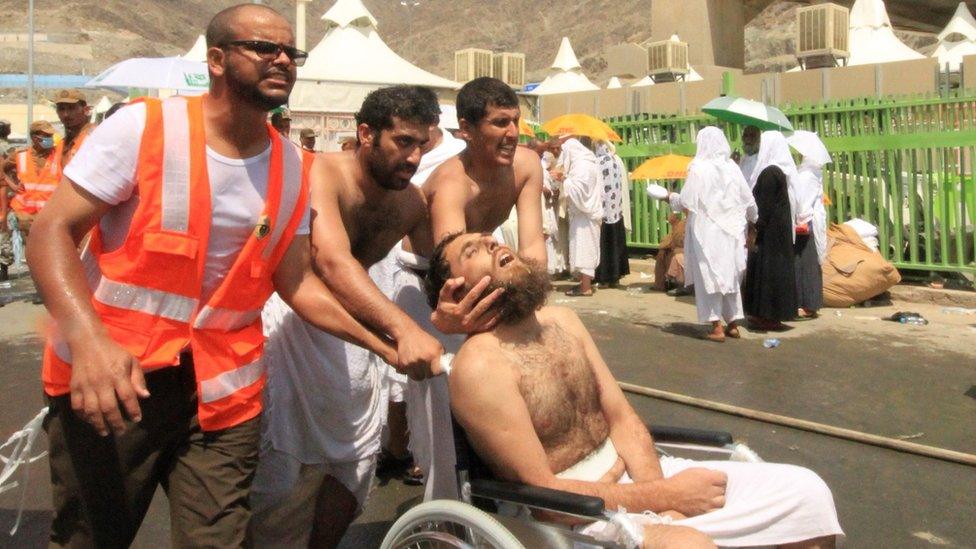At least 14 Hajj pilgrims die in intense heat
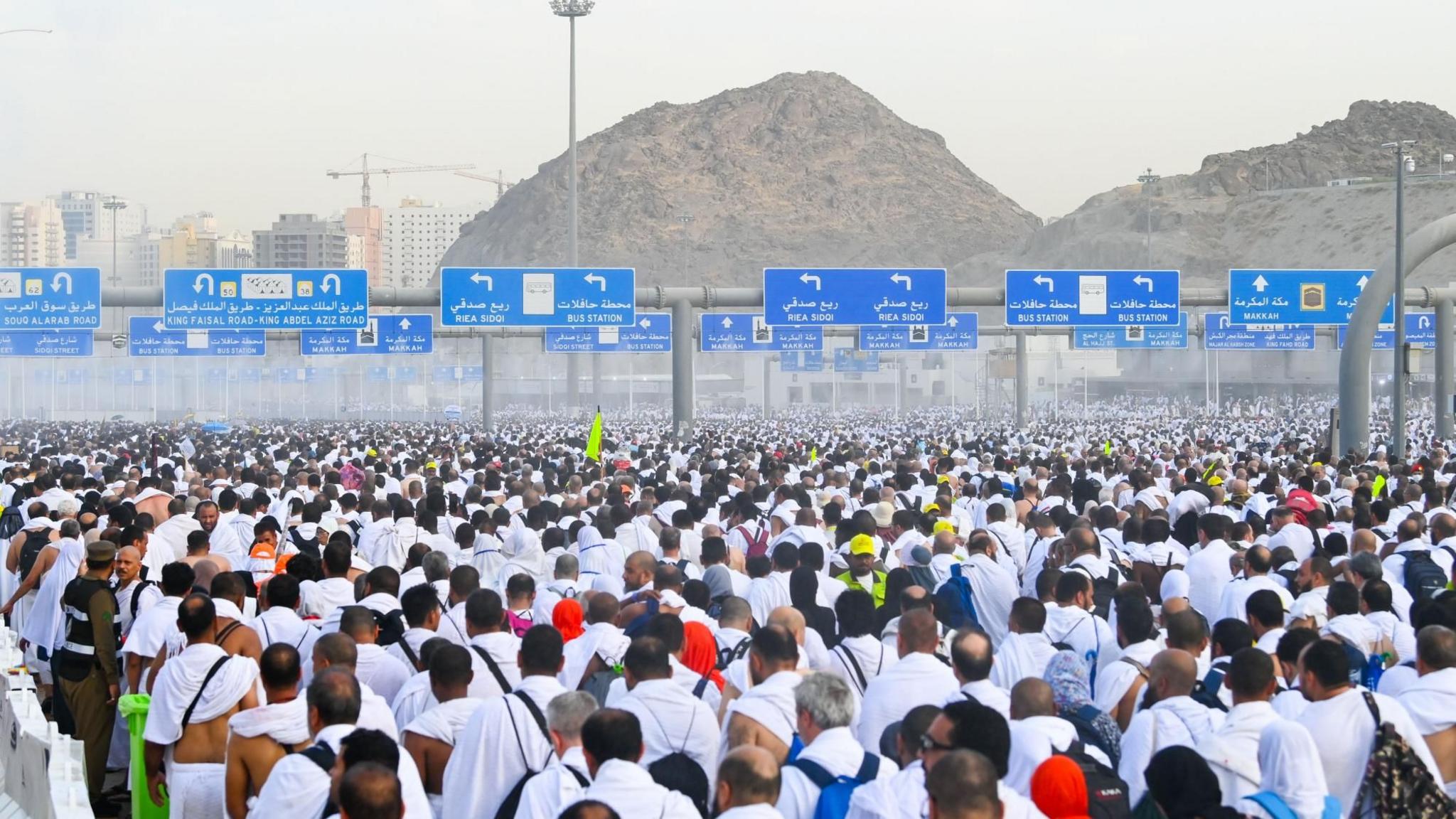
1.8 million Muslims are taking part in this year's Hajj pilgrimage in Saudi Arabia
- Published
At least 14 Jordanian citizens have died during the Hajj pilgrimage in Saudi Arabia due to intense heat, officials have said.
Jordan's foreign ministry said 14 of its nationals had died "after suffering sun stroke due to the extreme heat wave" and a further 17 had been reported missing.
According to the AFP news agency, the Iranian Red Crescent confirmed that five Iranian pilgrims had also lost their lives, but did not specify how they died.
Jordanian officials said searches were continuing for those missing.
In a statement the Jordanian foreign ministry said it was coordinating with the Saudi authorities on procedures to bury or transport the bodies of the deceased, according to the wishes of their families.
Hajj, a religious requirement for all Muslims, is one of the largest mass gatherings in the world.
It is one of the five pillars of Islam along with five daily prayers, fasting, charity, and a belief in God (Allah) and in Muhammad as a prophet.
More than 1.8 million pilgrims are taking part this year, according to Saudi officials.
Hajj has a history of deadly catastrophes, including stampedes and tent fires. But most years, the main challenge comes from intense heat.
Temperatures exceeded 46C (114.8F) this week, making many of the rituals that are performed outdoors and on foot challenging especially for the elderly.
The head of Saudi national meteorology centre, Ayman Ghulam, warned last week: "The expected climate for Hajj this year will witness an increase in average temperatures of 1.5 to 2 degrees [Celsius] above normal in Mecca and Medina."
The two cities are at the heart of the five-day Hajj pilgrimage.
A treatment centre near Mount Arafat recorded 225 cases of heat stress, the official Saudi Press Agency reported.
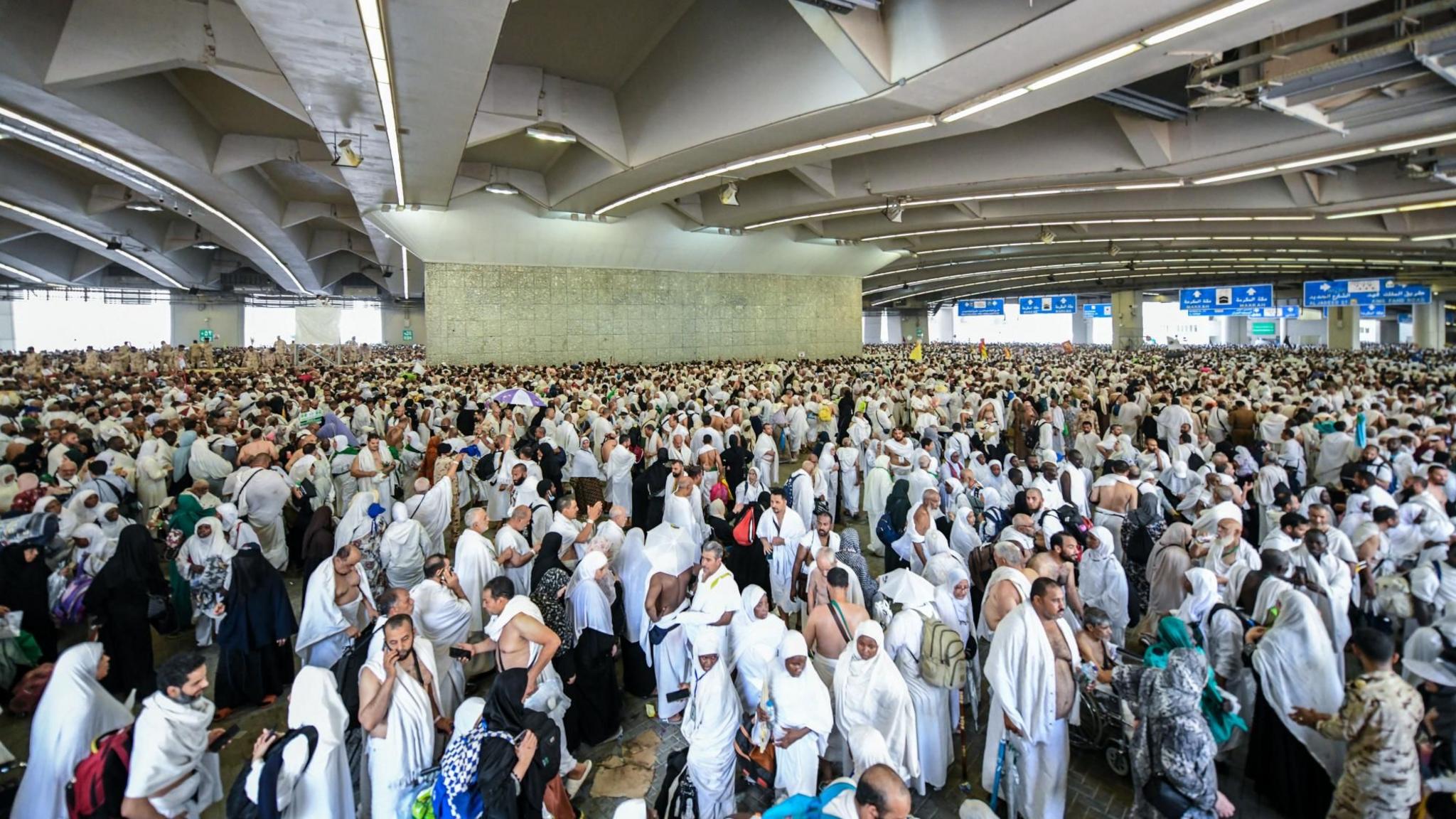
Pilgrims attend the symbolic stoning of the devil ritual near Mecca
"It's physically gruelling, but it's very spiritually charged," Neron Khan, a Canadian pilgrim told AFP.
She added that during some of the rituals, she was in "some sort of heat exhaustion situation".
The pilgrimage will end on Wednesday. Saudi officials say as part of heat mitigation measures, they have set up many climate-controlled areas. They distribute water and offer advice to pilgrims on how to protect themselves from the sun.
The Saudi health ministry also issued an advisory, asking pilgrims to stay hydrated and avoid being outdoors during the hottest hours of the day between 10:00 and 16:00.
Last year, at least 240 people died. And in the worst Hajj disaster, a deadly crush in 2015 killed more than 2,000 people.
Related topics
- Published26 June 2023
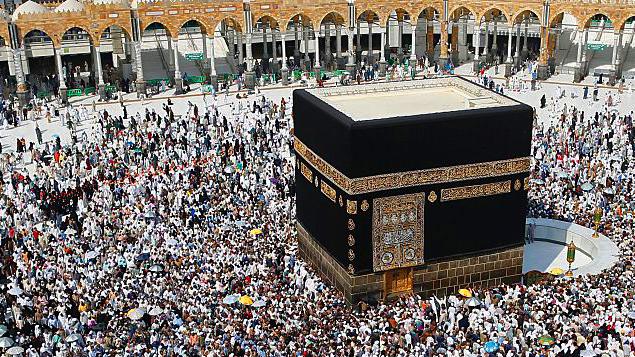
- Published11 June 2024
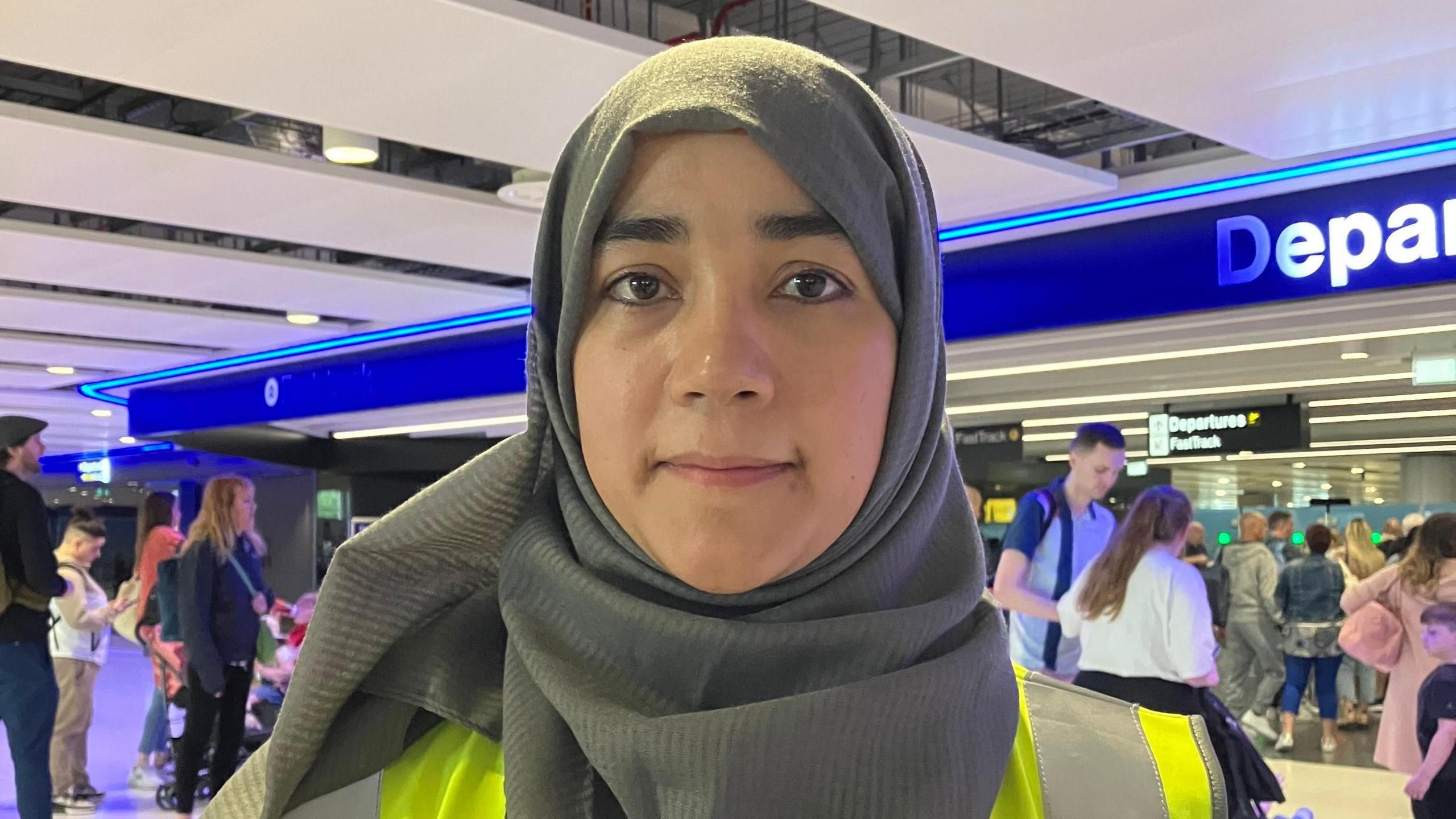
- Published24 September 2015
